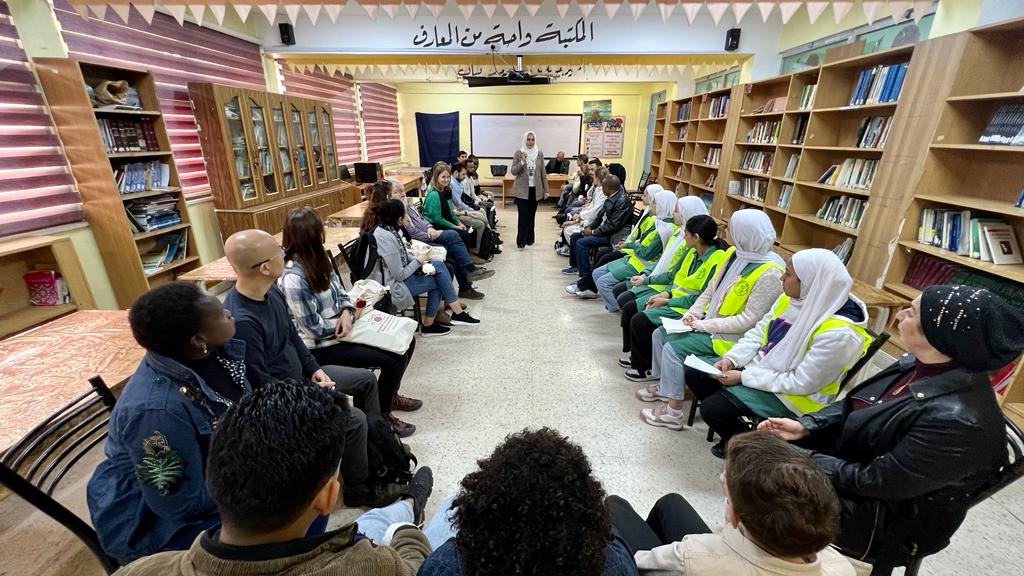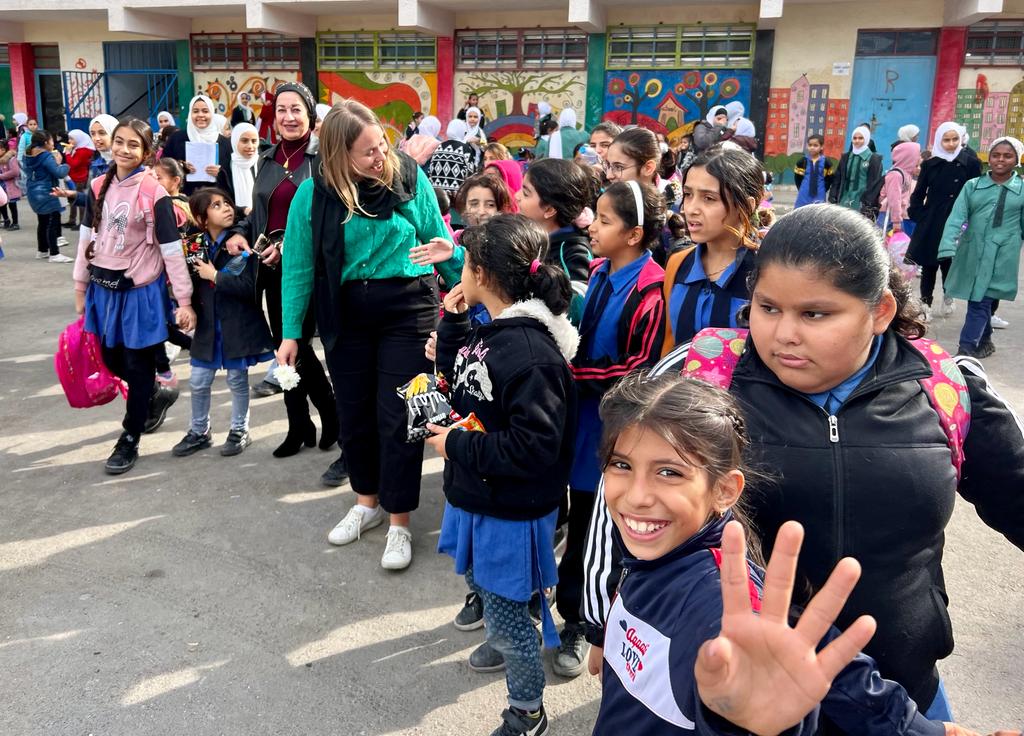International Diploma in Humanitarian Assistance
Shaping Humanitarian Leaders
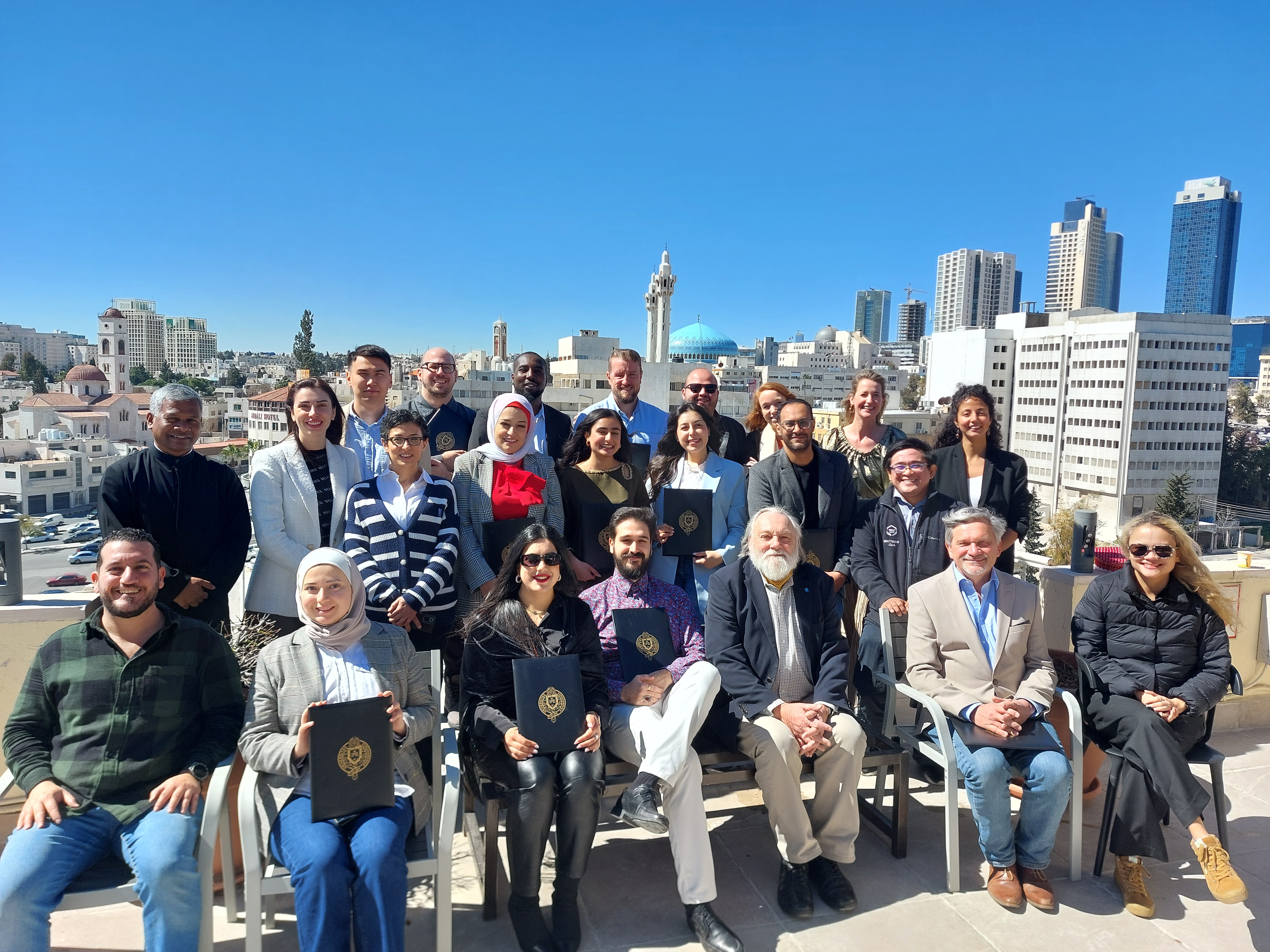
The International Diploma in Humanitarian Assistance (IDHA), the flagship program of the Institute of International Humanitarian Affairs, equips mid-career professionals to drive the humanitarian sector of the future in a more effective, sustainable, and dignified direction. Students will also develop a holistic perspective on global humanitarian issues to propel them to the next level in their careers, helping them create positive social change both in and out of the field.
For over 20 years, the intensive, four-week residential training of the International Diploma in Humanitarian Assistance (IDHA) has welcomed thousands of humanitarian workers in cities around the world – from Kathmandu to Amman, New York to Geneva. Unique among other academic training of its kind, the IDHA emphasizes cultural diversity, cooperation, and teamwork. Students join a cohort of diverse and highly qualified aid and development professionals from all over the world.
Directed by alumni practitioners, the IDHA centers around the Ignatian principle of being men and women for others by enhancing students’ knowledge and skills in complex emergency and protracted crisis intervention. Students are also encouraged to critically examine global humanitarian processes to identify necessary reforms in both the public and private sectors.
Date and Locations | Program Basics | Learning Goals | Program Highlights | General Approach | Faculty | Sample Schedule
IDHA 58
| When | April 28 - May 24, 2024 |
| Where |
Pretoria, South Africa |
| Application Deadline | April 22, 2024 |
Program Basics
-
Certified by the New York State Education Department
-
Course cost of U.S. $6,000 includes tuition, course materials, lodging, and weekday meals. Transportation costs are not included. Fall, Spring, and Summer IDHAs are subject to university fees as listed on the Graduate School of Arts and Sciences website.
-
In order to secure a place in the program, admitted students must pay a nonrefundable deposit of $500 to the university by the start date. The deposit is credited toward the student's course cost.
- Program is not eligible for U.S. federal aid programs
- In order to further the internationally adopted objective of humanitarian localisation for students from the South Africa region:
- Tuition fees US $3,000 (Students from outside the SA region is US $6,000)
- For a list of nearby accommodations please email [email protected]
Learning Goals
Graduates of the International Diploma in Humanitarian Assistance will gain:
- Extensive insight into the needs of people affected by conflict, disaster, and displacement
- Skills in facilitating cooperation and dialogue between international, governmental, and nongovernmental agencies
- Awareness and understanding are essential for effective service in emergency and protracted humanitarian crises
- Opportunities to collaborate and network with colleagues working for diverse range of international, governmental, and nongovernmental humanitarian agencies
- Tools to evaluate interventions and identify examples of good practices; and methods for anticipating and preventing humanitarian crises
Program Highlights
-
Students receive lectures from world-renowned humanitarian experts
-
Presentations, debates, case studies, practical exercises, and scenarios allow for collaborative learning opportunities in a cohort of field-experienced humanitarians
-
Covers a full range of disciplines involved in humanitarian response, including: management, logistics, health, psychology, social sciences, anthropology, communication, agriculture, environment, education, conflict resolution, international law, civil/military relations, security, media, politics, and economics
General Approach
To bring participants to the cutting edge of operational humanitarian issues in a month-long, residential, intensive course of lectures, exercises and tests, both individual and in syndicates, with an emphasis on interactive participation.
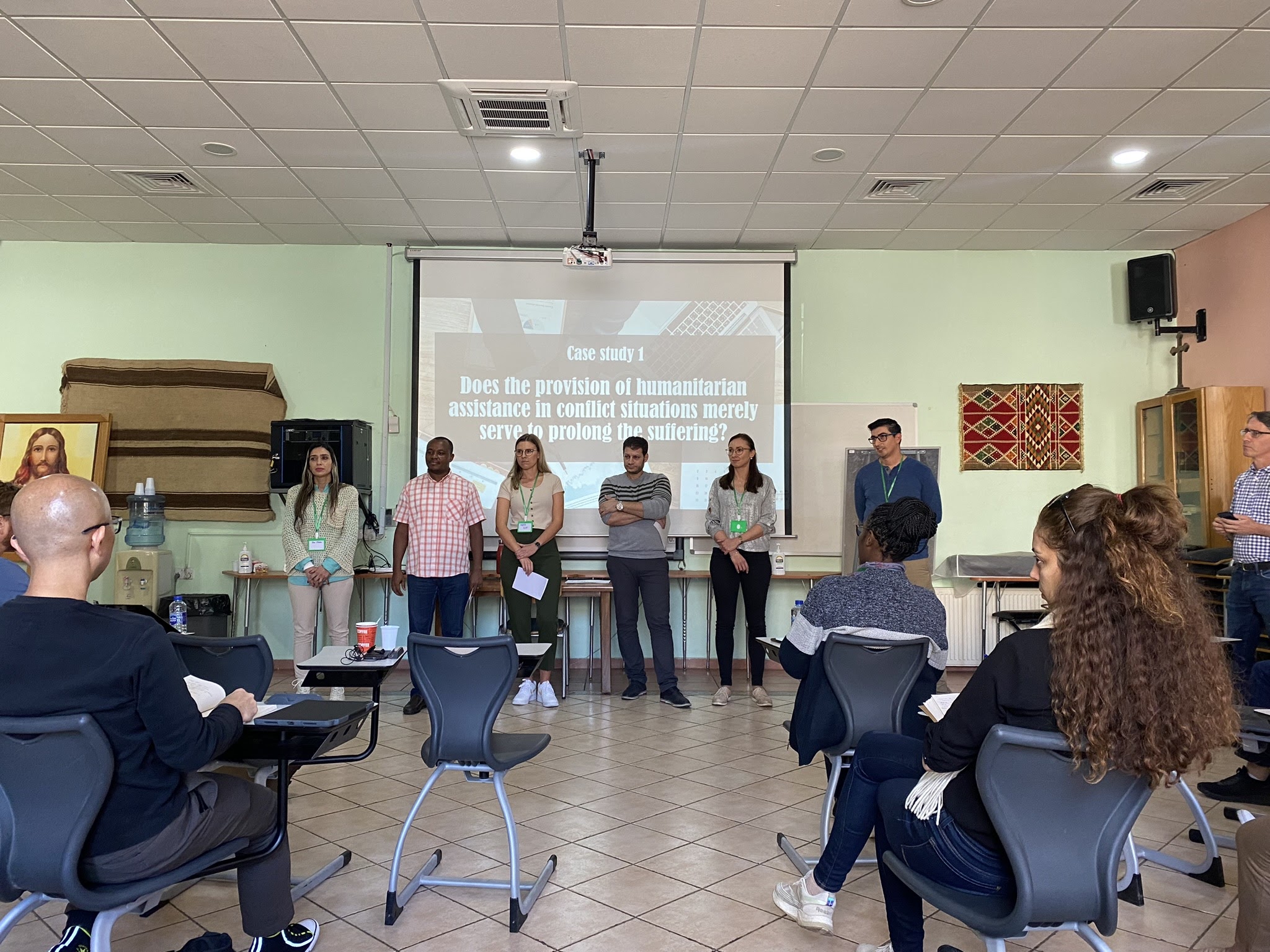
Faculty
Participants will have the opportunity to meet, listen to and dialogue with United Nations, Military and Non-Governmental officials, as well as political, diplomatic, and academic figures.
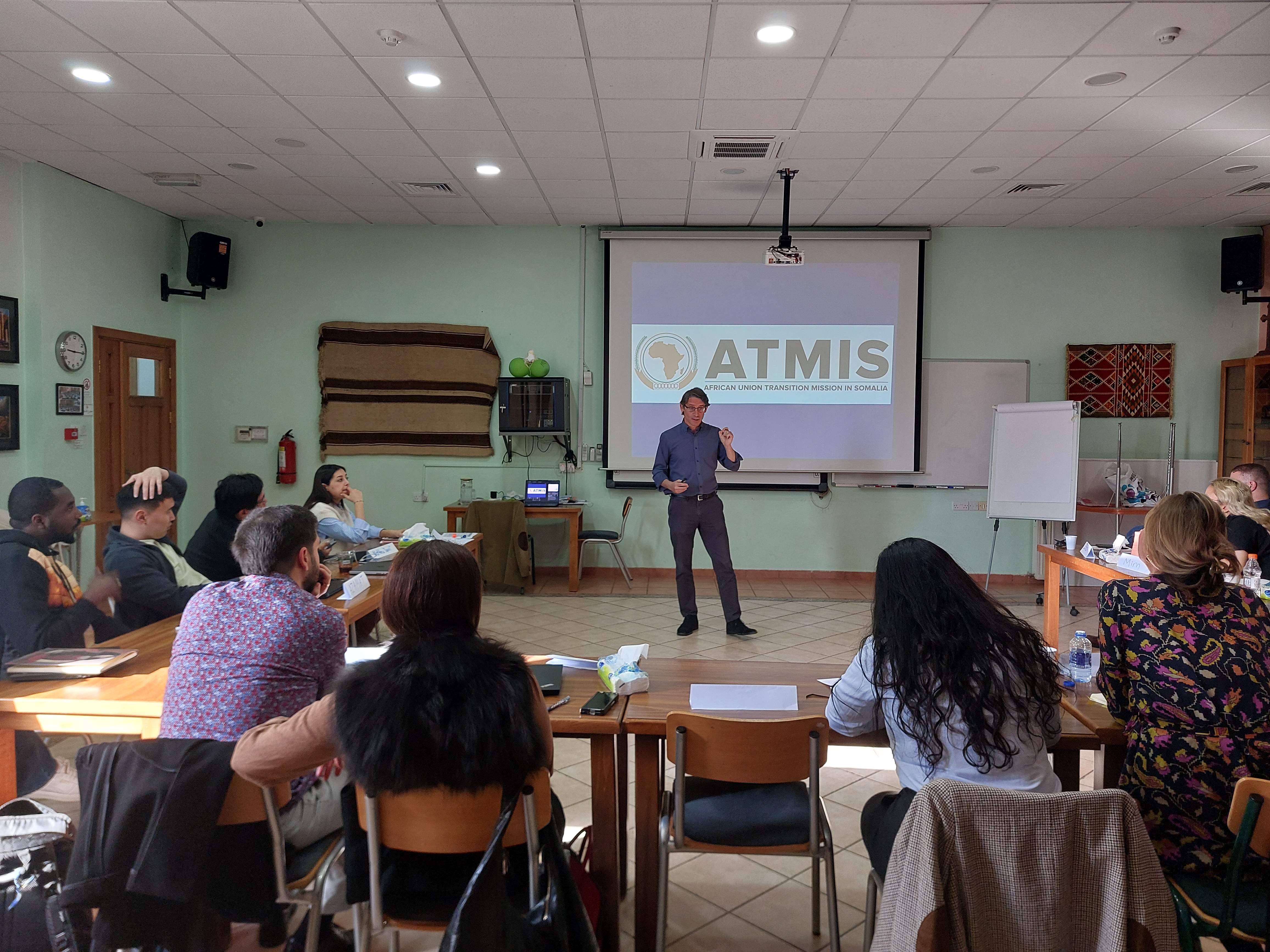
SAMPLE Daily Time Table (5 days per week: Sunday to Thursday):
|
Breakfast 7:30 a.m. – 8:15 a.m. |
Morning Sessions 8:30 a.m. – 12:30 p.m. |
|
Lunch 12:30 p.m. – 2:00 p.m. |
Afternoon Sessions 2:00 p.m. – 6:00 p.m. |
|
Dinner 7:00 p.m. – 8:30 p.m. |
Students are expected to work on group assignments and in personal research and study in the evenings. |
SAMPLE Daily Schedule:
|
When |
What |
Who |
|
8:30 – 10:30 |
Education in Emergencies |
Humanitarian Lecturer |
|
10:30 – 10:45 |
Coffee Break |
|
|
10:45 – 12:30 |
Water, Sanitation, Hygiene (WASH) |
Humanitarian Lecturer |
|
12:30 – 2:00 |
Lunch |
|
|
2:00 – 3:30 |
Nutrition |
Humanitarian Lecturer |
|
3:30 – 3:45 |
Coffee break |
|
|
3:45 - 5:15 |
Climate Change: Impact on Vulnerable Populations |
Humanitarian Lecturer |
| 5:15 - 6:30 |
Communicable Diseases |
Humanitarian Lecturer |
|
7:00 |
Dinner |
|
